from the Jerusalem Post
Dec. 11, 2008
BENJAMIN WEINTHAL and ALEX FEUERHERDT , THE JERUSALEM POST
Prof. Alvin H. Rosenfeld's 2007 essay "Progressive Jewish Thought and the New Anti-Semitism" triggered an international debate over a largely neglected phenomenon: anti-Zionist Jews who are waging fierce polemical and organizational campaigns against Israel's existence. Many of them employ language that fulfills the criteria of both the European Union's "working definition" of anti-Semitism and the US State Department's definition of contemporary anti-Semitism.
Although such anti-Zionist Jews are a bizarre fringe group in the US, England, Canada and Germany, they are, nonetheless, attracting growing attention from mainstream media because of their support for campaigns to boycott Israel and their comparisons of Israel with Nazi Germany and the former apartheid regime in South Africa.
In his carefully worded manifesto, Rosenfeld, director of the Institute of Jewish Culture and Arts at Indiana University and a leading Holocaust scholar, poses the pressing question: Are these "Progressive Jews" contributing to the new anti-Semitism? Perhaps the most astonishing achievement of his essay is the didactic purpose it serves for a non-Jewish audience. Charges of anti-Semitism and vulgar anti-Zionism among Jews have been written off by non-Jews as an internecine Jewish matter. However, major German and European media outlets, as well as university forums and politicians, which seem unable to resist the temptation to offer a bully pulpit to hard-core anti-Zionist Jews, could benefit from a sober reading of
Rosenfeld's essay. A vicarious need among many German journalists to vent anti-Israeli hostility through anti-Zionist Jews, who inoculate the press from the charge of Jew hatred because of their Jewish backgrounds, helps to explain the staying power of this unsavory phenomenon.
Rosenfeld's essay has been translated into German and his ideas have been discussed, attacked and praised in a number of German newspapers. The ongoing legal dispute between the German-Jewish journalist Henryk M. Broder and Evelyn Hecht-Galinski over whether Hecht-Galinski is a Jewish anti-Semite jolted the German media.The recent release of the media watchdog organization CAMERA's book, Israel's Jewish Defamers: The Media Dimension (2008), which includes a new essay by Rosenfeld, adds more insight into "the Jewish Jew-haters."
Professor Rosenfeld, is there Jewish anti-Semitism? Isn't that a contradiction in terms?
On the face of it, Jewish anti-Semitism does sound like a contradiction in terms, but unfortunately the phenomenon exists and has a long history. Some even claim to find reference to it as far back as the Bible and interpret a verse such as Isaiah 49:17 as an example: "Your destroyers and they that make you waste will come forth from among you." Isaiah was a farsighted prophet, and while I claim no direct line of continuity between ancient and medieval Jewish enemies of the Jews and the people that Henryk M. Broder has rightly been exposing as implacably anti-Zionist and anti-Semitic, some of the parallels are chilling.
Jewish intellectuals like Tony Judt, Noam Chomsky and Alfred Grosser strongly deny being anti-Semites. They claim they are simply formulating severe critiques of Israeli policy that have nothing to do with anti-Semitism. What do you think of that claim?
In and of itself, criticism of Israeli politics and actions need not be anti-Semitic. Like all countries, Israel is far from perfect and should not be exempt from criticism, even sharp criticism. But too often what passes as criticism of Israel is no more than a code term, or rhetorical cover, for what is sometimes transparently a form of verbal aggression - an impassioned denunciation or vilification of the state itself and even its right to continued existence. If one attends carefully to the language of some of the people you name, one finds that it has an edge to it - an extra note of enthusiasm, anger, bitterness: an overwrought quality - that goes well beyond what one normally thinks of as political commentary or criticism. Something perverse is going on here, something that one almost never finds when critics turn their sights on other countries, unless that country happens to be America.
The current legal dispute between Broder and Evelyn Hecht-Galinski, the daughter of Heinz Galinski [former head of the Central Council of Jews in Germany and the Berlin Jewish Community] caused widespread media attention in Germany. Hecht-Galinski equates Israeli policies with Nazi Germany and argues that a "Jewish-Israel lobby with an active network extends around the world and, thanks to America, its power has become great." Do you view Hecht-Galinski's statements as anti-Semitic? And what is her motivation for waging a campaign against Israel in the German media?
I don't know Evelyn Hecht-Galinski, so I have no idea what motivates her. What I do know is that anytime I come across someone who draws links between Israel and Nazi Germany, I become more than just a little uneasy. And when such bogus links are made by commentators within Germany, then it's time to pay special attention and ask what in the world is going on. For these analogies are not only without foundation by the facts of the real world but manifestly foul, clear expressions of bad faith or ill-will.
When such people also allege a concerted effort by a "Jewish" or "Israeli" lobby to exert control around the world, then the game is up. Mahmoud Ahmadinejad just spouted this despicable stuff, which could have been taken right out of the Protocols of the Elders of Zion, before a large gathering at the United Nations. Remarkably, he received sustained applause for it. Had they been in this audience, would Hecht-Galinski, Grosser, Judt and Chomsky have joined in the hearty reception for the vicious words of the Iranian president or walked out on him?
I would be heartened to read of their disapproval, but to date have seen nothing by any of them that expresses contempt for this horrific assault. And yet to just let it pass, as if it doesn't matter, is dismaying, and a sign that the most extreme anti-Semitic rhetoric no longer registers as serious or somehow is viewed as acceptable. That's a deeply worrisome development, abetted by some of the aggressive words of anti-Zionist Jewish intellectuals.
When does criticism of Israel become anti-Semitic?
Natan Sharansky's "three Ds" test applies here: Whenever so-called criticism of Israel demonizes or delegitimizes the Jewish state or holds it to a double standard in passing judgment on it, we have crossed a line that distinguishes legitimate criticism from anti-Semitism. There are other measures as well, but Sharansky's are surely apt.
The European Union has had a working definition of Anti-Semitism since 2005. The US State Department's definition mirrors the EU definition. The American historian Jeffrey Herf commented that "the State Department definition is okay, but I would add that the most dangerous form of anti-Semitism accuses Jews of waging wars with the intent to exterminate others. This was the central Nazi accusation and key justification for mass murder. Related to it is the accusation that Jews have seized control of a nation's foreign policy and led it to war against its own national interests. The accusation that an Israel lobby was responsible for the war in Iraq is of that sort." How do you view the definitions? And is Herf's criticism justified?
The EU's working definition is helpful, as is the US State Department's which resembles it closely, but neither is exhaustive. Herf's additions focus on some current, concrete examples that are justified and help to drive home the reality of a resurgent anti-Semitism.
In your essay "Progressive Jewish Thought and the New Anti-Semitism," you write: "The extreme anti-Zionism is not driven by anything remotely like reasoned historical analysis, but rather by a complex tangle of psychological as well as political motives that subvert reason and replace it with something akin to hysteria." What political and psychological motives do you mean?
The political motives behind present-day hostility to Jews and the Jewish state spring from both right-wing and left-wing circles, but on the intellectual level, most of it is situated among people who identify with the Left. To proclaim oneself an anti-Zionist today is to seek validation as a member in good standing of so-called progressive opinion. To my mind, such gestures illustrate nothing much more than the ritualistic aspects of a weak political identity and point up the poverty of much of what passes today as "progressive" thought.
As for the emotional content or psychological motives at work here, that's complex and cannot be adequately covered in a brief interview. Sander Gilman has analyzed some of this complexity in his major study of Jewish self-hatred. Theodor Lessing's earlier study exemplifies as well as clarifies some of the mental/emotional turbulence at play.
In your essay you do not address Jewish self-hatred. Does the phenomenon exist? And if so, how do you asses it?
You are right, I don't deal with Jewish self-hatred in that essay, and not because I am skeptical about its existence. Sadly, it does exist, especially among Jews who are beset by a disturbed or deeply conflicted Jewish identity. Gilman's book is a must-read for anyone who wishes to learn more.
Let me just say this much for now: No one who knows the Jews well would mistake them for being a normal people. They are not. The Jews date back a long time - we are now in the year 5769 - and in different ways see themselves as part of a long, accomplished, but often difficult history. Threatened with total annihilation by Nazi Germany and its allies just the day before yesterday, as Jews count time, some Jews do not want to see themselves or want to be seen by others within this line of descent.
Add to these anxieties and rejections the revival of Jewish national sovereignty in the State of Israel after millennia of national political disenfranchisement, and you can begin to see how complex Jewish identity can be. It is impacted by numerous factors - family, community, country, culture, history - some of which make Jews feel uneasy or inadequate or embarrassed or vulnerable.
One way - not a healthy way - to deal with the tangle of pressures that accompany such a multifaceted identity is to deny it altogether or turn aggressively against it. When that happens, and especially when Jews internalize the external charges against them and adopt the negative stereotypes in which these charges crystallize, you get something like Jewish self-hatred. Most Jews are not afflicted by it, but some are.
According to a 2007 BBC survey, three-quarters of all Germans have a negative opinion of Israel. Surveys show that anti-Semitism is growing steadily in Europe, not least among Muslim immigrants. Against this background, how do Jewish intellectuals come to condemn Israel in such harsh form?
Especially at a time when anti-Semitism is again having a voice in segments of the European public, it's irresponsible for Jewish intellectuals to say some of the extreme things some have been saying. And it's especially objectionable when some of these same people - to name just three: Grosser, Hecht-Galinski and Reuven Moscovitz - regularly attack Israel in the name of Judaism or Jewish ethics or Jewish experience during the Shoah. These critics of Israel need their own critics. I am full of respect for Henryk Broder for taking them on and pointing out how wrongheaded and reckless they can be. More power to him!
Many of the Israel-criticizing Jews claim that Israel's policies toward Palestinians promote anti-Semitism. What is your assessment of that?
If one wants to identify the agents of today's anti-Semitism, one should look to the anti-Semites, not to Israel. How Israel can be justifiably blamed for the desecration of Jewish cemeteries within Europe, or the burning of synagogues, or assaults against individual Jews beats me.
Benjamin Weinthal is The Jerusalem Post correspondent in Germany. Alex Feuerherdt lives in Bonn and writes for the Berlin daily Der Tagesspiegel, the weekly Jewish newspaper Jüdische Allgemeine, and the weekly Jungle World.
This article can also be read at http://www.jpost.com /servlet/Satellite?cid=1228728151848&pagename=JPost%2FJPArticle%2FShowFull
Thursday, December 25, 2008
Subscribe to:
Post Comments (Atom)










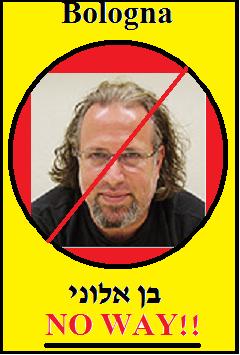

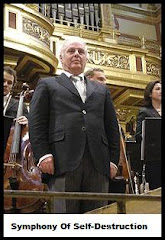
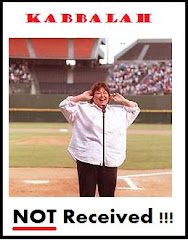
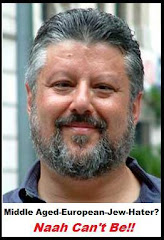
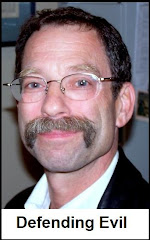
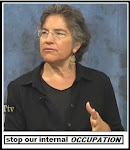
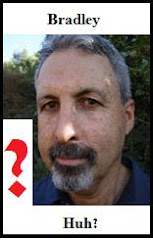


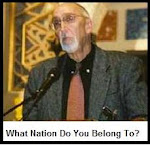

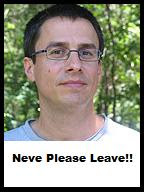



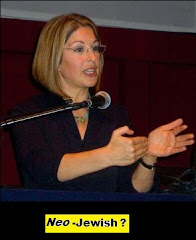


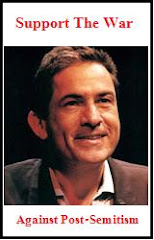


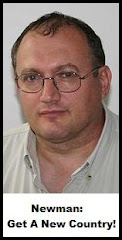



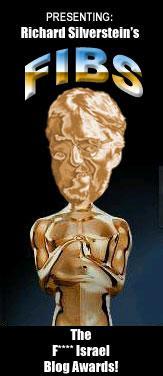



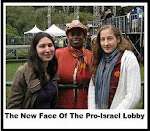
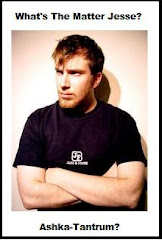





No comments:
Post a Comment